Concerns about the Fed's interest rate cut, Russia's hundreds of billions of dollars in reserves still out of reach of the West, the EU starting the process of admitting Albania, China's exports reaching a record, South Korea hoping to surpass Japan in exports... are the world economic news highlights of the past week.
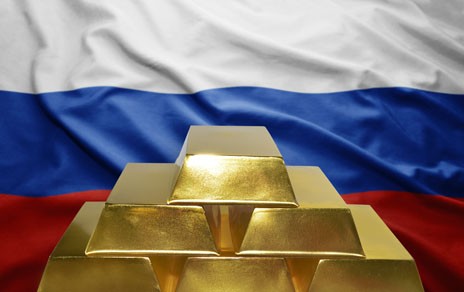 |
| Unlike foreign exchange reserves, Russia's gold reserves cannot be confiscated by the West. (Source: Kitco) |
World economy
WB warns of global economic impact from escalating conflict in the Middle East
World Bank (WB) President Ajay Banga warned on October 15 that escalating conflicts in the Middle East could have major impacts on the global economy, saying that the loss of civilian lives in the region was "unacceptable".
The conflict in the Middle East has so far had a relatively small impact on the global economy, but a wider conflict would draw in other countries that are larger contributors to global growth, including commodity exporters, Mr. Banga said.
“First of all, I think the staggering human losses are unacceptable on all sides of the conflict,” the World Bank chief said. “On the other hand, the economic impact of this conflict depends very much on how widespread it is.”
Several Western nations are pushing for a ceasefire between Israel and Lebanon, as well as in the Gaza Strip. Mr. Banga said the economic cost of Israel’s current attacks on Gaza could be between $14 billion and $20 billion, and the devastation from Israel’s bombing of southern Lebanon would add to the total damage in the region.
Mr. Banga said the World Bank had provided $300 million, six times its normal level of assistance, to the Palestinian Authority to help them manage the crisis on the ground, but that was a small amount compared to what they would need in the future.
US economy
* US Federal Reserve (Fed) Governor Christopher Waller recently expressed concern about the Fed's pace of interest rate cuts , saying the bank should be more cautious after recent inflation data "disappointed".
The Fed began its rate-cutting cycle last month by cutting interest rates by half a percentage point, citing a significant decline in inflation and a move closer to its long-term target of 2%. However, Mr. Waller said the data released in the three weeks since that rate cut has been “uneven,” calling the latest inflation reading “disappointing.”
Mr. Waller affirmed his support for a more moderate rate cut in the coming period.
Chinese economy
* China's gross domestic product (GDP) growth is expected to slow to 4.8% in 2024, below the government's target, according to a Reuters survey. It could even fall to 4.5% in 2025, reflecting pressure on policymakers as they consider more stimulus measures.
In the third quarter of 2024, China's economy is forecast to grow 4.5% year-on-year, down from 4.7% in the second quarter of 2024. This is the lowest growth rate since the beginning of 2023.
* According to SCMP on October 14, data released by China showed that the total value of goods imported and exported in the first three quarters of this year was 32,330 billion yuan (about 4,561 billion USD), the first time in history that it exceeded 32,000 billion yuan in the same period. The above figures increased by 5.3% compared to the same period last year.
In the first three quarters of 2024, China's imports reached 13.71 trillion yuan, up 4.1% year-on-year, and exports reached 18.62 trillion yuan, up 6.2%.
European economy
* Albania opened a new chapter in its history when it officially began negotiations to join the European Union (EU) at a conference held on October 15 in Luxembourg. This event marked an important milestone in the Balkan country's European integration process.
At the conference, the EU side showed its strong commitment to the enlargement process. Meanwhile, the presence of Prime Minister Edi Rama affirmed Albania's determination to integrate into Europe.
During the conference, negotiations on the first cluster – which covers key areas of the EU accession process – officially began. This is an important milestone for Albania, as the country has made significant progress in meeting the basic requirements, in particular in chapters 23 and 24, which relate to the rule of law and core EU standards.
* Germany's economy is in a mild recession and GDP will be flat in 2024, according to a Bloomberg survey, underscoring the uncertainty at the heart of Europe's largest economy.
Analysts polled by Reuters expect German GDP to contract by 0.1% in the third quarter of 2024, following an earlier surprise contraction of the same magnitude in the second quarter. A month ago, they had forecast the economy would stagnate in the third quarter.
The survey's full-year forecast was also revised down from the 0.1% growth forecast given in September. But it was still slightly more optimistic than the German government's estimate, which last week lowered its national economic growth forecast to a 0.2% contraction.
* Luxury goods group Moët Hennessy Louis Vuitton SE (LVMH) is expected to pay an additional 800 million euros ($870 million) in taxes next year, after France announced plans to raise taxes on its largest corporations to shore up public finances.
Last week, France unveiled a draft budget that includes tax increases for businesses and the wealthy to help ease the burden of public debt. Under the plan, temporary levies will be applied to more than 400 profitable corporations with annual revenues of over €1 billion, aiming to raise €8 billion in 2025 and €4 billion in 2026.
* According to The Jerusalem Post (Jpost), despite sanctions that have resulted in the freezing of the assets of the Central Bank of Russia (BoR), the country has managed to keep hundreds of billions of dollars out of the West's reach thanks to some special efforts.
The Jpost article emphasizes that Russia has been actively accumulating gold for several years now. Part of the BoR reserves has been converted into gold, which is stored domestically. Unlike foreign exchange reserves, gold cannot be confiscated. Therefore, it is largely thanks to gold that the Russian economy has been able to survive.
According to the article, this income is largely “on paper” but can be used to circumvent sanctions if necessary.
The share of gold in Russia's foreign exchange reserves has reached a record high. According to the BoR, as of October 1, 2024, gold reserves reached $199.764 billion. In September 2024, gold accounted for 30.8% of the country's total foreign exchange reserves and has now risen to its highest level since 1999 at 31.5%.
Japanese and Korean economies
* Statistics released by the Japan National Tourism Organization on October 16 showed that the number of foreign tourists to the country is increasing rapidly this year, with the number of visitors from January to September 2024 surpassing the total for the whole of 2023.
Specifically, about 26.88 million foreign tourists visited Japan in the period from January to September 2024, an increase of 54.7% over the same period last year, higher than the 25.07 million visitors for the whole year of 2023.
In September alone, the number of tourists is estimated to have increased by 31.5% compared to the same period last year, reaching a record 2.87 million. This figure is also up 26.4% compared to the same period in 2019 - the time before the Covid-19 pandemic broke out.
* The South Korean government will provide low-interest loans and other support worth 8.8 trillion won (US$6.45 billion) to the semiconductor industry by 2025 in an effort to boost the competitiveness of the advanced sector, the Ministry of Economy and Finance said on October 16.
This is part of a comprehensive support package worth 26 trillion won announced by President Yoon Suk Yeol in June this year for South Korea's key industries amid growing global competition.
* The Korea Times recently published an article titled “ Surge in export growth raises hopes of Korea surpassing Japan ” quoting experts as saying that Korea’s exports are growing at a faster pace with less than three months left until the end of 2024. Economic statistics and surveys published this year by domestic and international organizations show that the country could surpass Japan in export volume for the first time in history.
According to the Ministry of Trade, Industry and Energy of South Korea, the export turnover of South Korea in the first nine months of 2024 reached 508.8 billion USD, becoming the second highest total export turnover in the history of this country. In the period from June to September 2024, the export volume increased 10.7% compared to the same period last year, reaching 173.9 billion USD. This is also the second highest export figure in the third quarter of any year in the history of South Korea.
ASEAN Economy and Emerging Economies
* The Indonesian government said that in the period from January to September 2024, it attracted 1,261,400 billion Rp (nearly 81 billion USD) of investment capital from domestic and foreign enterprises. Up to now, Indonesia has achieved nearly 76.5% of the target of 1,650,000 billion Rp for the whole year of 2024.
“The investments we recorded in the January-September 2024 period increased by almost 20% compared to the same period last year. So I think we are on track to reach the target of Rp 1,650,000 billion by the end of this year,” Investment Minister Rosan Roeslani said on October 15.
* Malaysia's Transport Ministry needs more funding in the 2025 budget to address the shortage of skilled workers in the automotive sector, especially electric vehicles (EVs).
According to Dr. Mohd Azman Abas, Director of the Automotive Development Centre (ADC) at University of Technology Malaysia (UTM), although there are many skills training programs in the field of electric vehicles, Malaysia needs to continue to improve the skills of its workers to meet the increasingly rapid changes in technology.
Financial resources allocated in the Budget are an important factor in improving training programs.
* On October 16, at the Government House in Bangkok, Thai Prime Minister Paetongtarn Shinawatra officially launched a nationwide economic recovery project to support small businesses, loosen spending and reduce living costs for people.
To implement this project, the Thai Ministry of Commerce is working with government agencies along with more than 150 representatives of private sector organizations to seek coordination and cooperation among parties, including the Ministry of Defense, Ministry of Interior, Ministry of Digital Economy and Society, Ministry of Public Health, Thai Chamber of Commerce, Federation of Thai Industries, Thai Retail Association, wholesale and retail department stores, and petrol stations.
The agencies plan to support the activities of the provincial trade office, such as finding participating businesses, securing venues and coordinating with local manufacturers to provide discounted products.
Source: https://baoquocte.vn/kinh-te-the-gioi-noi-bat-11-1710-phuong-tay-khong-the-tich-thu-tai-san-nga-eu-khoi-dong-ket-nap-quoc-gia-balkan-han-quoc-hy-vong-vuot-nhat-290345.html







![[Photo] Soldiers guard the fire and protect the forest](https://vphoto.vietnam.vn/thumb/1200x675/vietnam/resource/IMAGE/2025/9/27/7cab6a2afcf543558a98f4d87e9aaf95)


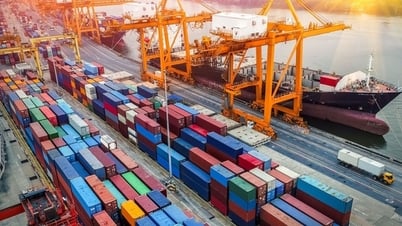

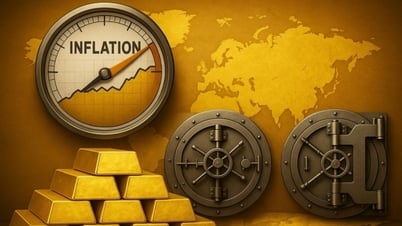
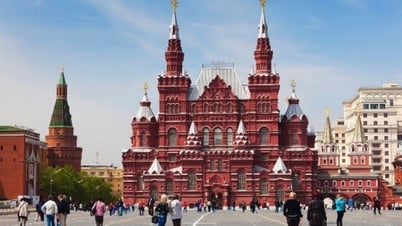
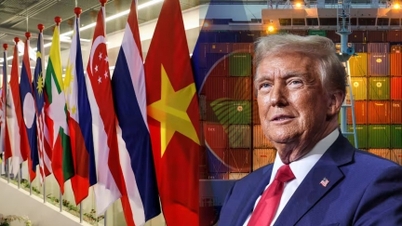
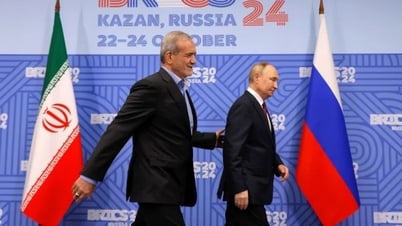













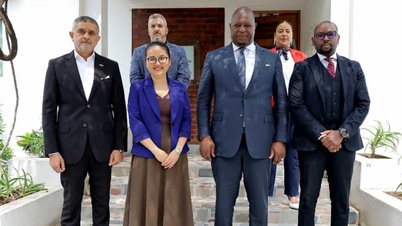

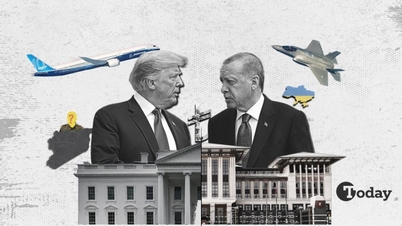


![[Photo] Prime Minister Pham Minh Chinh attends the 1st Hai Phong City Party Congress](https://vphoto.vietnam.vn/thumb/1200x675/vietnam/resource/IMAGE/2025/9/27/676f179ddf8c4b4c84b4cfc8f28a9550)






























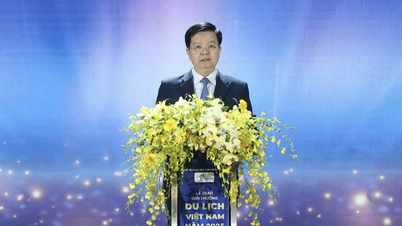














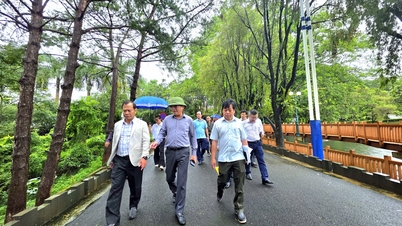























Comment (0)